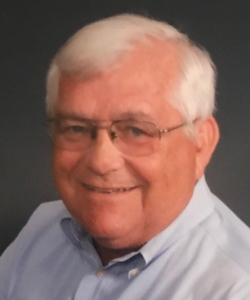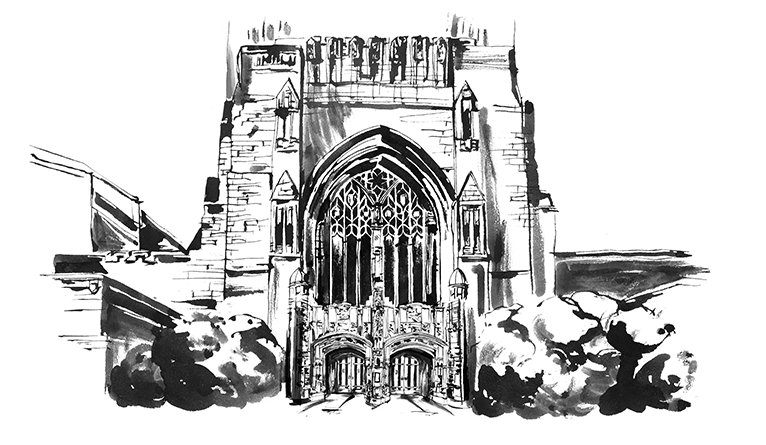Class Notes – Jan/Feb 2021

From Tulsa World: “Gene Carson Buzzard passed away on July 21, 2020 from complications related to brain cancer. He will be remembered by his family and many friends for his intellect, humor, curiosity, generosity, loyalty, general gusto, and for living his life with joy.
He loved sailing, baseball, fly fishing, the American West, photography, birding, cycling, the Blues, and almost anything that allowed him to be outside or with his family. He once ran the 10K Tulsa Run without a single day of training. He climbed mountains in Colorado, entertained the Prime Minister of Vanuatu in Papua, New Guinea, and performed conservation work with the Jefferson County Land Trust. He was a lifelong student of literature, philosophy, religion, and the natural world.
Gene loved nothing so much as he loved his wife, Christine. For 51 years, their marriage was always loving, occasionally contentious, and never, ever dull. For his three daughters, he offered endless encouragement, wise counsel, questionable dancing tips, and Mutual Admiration Society memberships valid in perpetuity. Gene was a fun-loving, top-notch Poppy to four beloved grandchildren, a steadfast friend to many, a 40-year member of Trinity Episcopal Church in Tulsa, and a parishioner of St. Paul’s Episcopal Church in Pt. Townsend. In 1978, along with his friends Keenan Barnard and Jack Powers, he cofounded Iron Gate, a nonprofit organization that provides food to Tulsans in need. Right after Yale, he served in Vietnam, and then earned his J.D. from Washington University in 1974. Gene practiced corporate litigation for 33 years. After retiring from law, he taught 8th grade English Literature for five years at Edison Middle School.” (Gene’s full obituary appears on the class website yale1969.org)
Jim Schweitzer reports: “Quentin Lawson died peacefully at his home in Washington, DC on October 7, 2020 of end-stage heart failure after a long and valiant battle with hereditary amyloidosis.

Quent came to Yale from Detroit and wound up with me in Vanderbilt. We bonded over the Doodle, the surgical tubing slingshot, and road trips, among other things. And we remained close friends for 55 years. We were hallmates in the Morse tower our senior year and—with the exception of a bit of time after graduation while Quent was working in New York and then at Michigan Law—we lived within a few minutes of each other at various spots in DC since the mid ‘70s. We spoke frequently, shared innumerable meals, and traveled together regularly with a group of other classmates, including, at various times, Larry Franks, Don Galligan, Dave Stretch, and Pat Madden. And for decades Quent was a constant presence at our annual Harvard weekend reunion in New York.
Quent was such a regular part of my life for so long that it’s hard to imagine a day without him in it. There was simply no better friend.
After law school, Quent spent his entire career working as an attorney at the Federal Energy Regulatory Commission, handling mostly hydroelectric issues. He enjoyed the work but was ready to retire, which he did in 2013.
Quent had a truly generous spirit to go along with a consistently sweet disposition. He was a marvelous storyteller and had a wonderful dry sense of humor. As Robb High once said, Quent “could make a stone laugh.” Those of us clueless social science majors who stumbled through astronomy junior year recall Quent’s hopeless stab at an exam question that asked the class to calculate the luminosity of the sun if it were 30 million miles closer to earth. Quent’s blue book answer: “It would be so bright that everyone would have to wear shades.” I think the professor gave him a two on a 60-point question for at least being original.
Franks recalled that: “Quent’s sense of humor was sly and dry. He was an accomplished raconteur, but his forte was the quip, mostly taking the form of off-the-cuff observations. My day was always a better one after sharing Quent’s humor and good cheer.”
Quent’s interests were varied. He was a voracious consumer of music, beginning with a stint at WYBC, where, as Franks put it, “he viewed his mission as at least partly to champion jazz and ‘cool’ selections at a time when many of us were off on psychedelic or other tangents.” He loved cinema and he seemed to have seen—and remembered—every movie ever filmed. When we traveled, it wasn’t unusual to find Quent in the middle of the night engrossed in some obscure foreign horror flick while everyone else in the house slept
Quent was also a dedicated rugby player–a sport he began at Yale–and for many years he played for Sudamericano de Rugby, followed by the Potomac Athletic Club where he was captain and then president. Incredibly, his career only ended when he was in his early 40s. It always struck me as out of character that someone with such an unfailingly gentle manner was so taken with rugby, but Quent loved it.
In 2000, Quent married Ellen Quinn, a delightful Peace Corps veteran, the love of his life, and very much his perfect mate and traveling companion. As Stretch said: “Q and Ellen were a matched pair, and it was wonderful to see them together.”
Quent was overjoyed to have made it to our 50th and to have seen so many of his old and treasured friends. He reveled in reminiscing about the antics of our college years and reconnecting five decades later. Watching him, I realized that whatever the future holds for the rest of us, it won’t be as full of warmth and laughter as our lives were with him in it.”
Tom Walsh died on September 22, 2020 of pancreatic cancer. A memorial will appear in the next edition of the Class Notes.
Full memorials, with pictures, appear online on the class website yale1969.org.
—anonymous email

